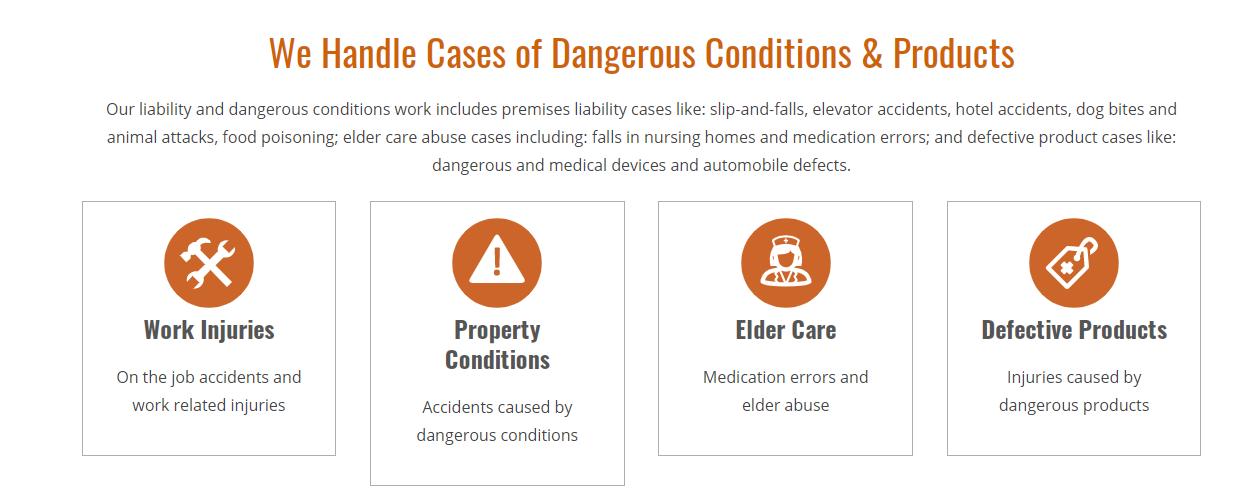How Law Firms Can Strategically Rebrand to Capitalize on Unique Opportunities
BY Tony Chiaramonte

LISTEN
When someone sets out in search of hiring a law firm, there is a good chance that they have little idea what it is they are looking for. Often, prospective clients find themselves in sudden need of an attorney, whether it be a personal injury lawyer after a serious car accident or a trust and estates attorney after the unexpected death of a loved one. Clients routinely have little knowledge regarding the underlying legal principles that will be used to resolve their issues. Thus, legal marketing is critical to reaching prospective clients in that it allows a firm to explain their services, and how it can help resolve the client’s legal issue.
The decision makers at successful law firms understand the importance of their firm’s brand. Law firms spend decades and hundreds of thousands of dollars, creating a recognizable and trusted brand. From the type of attorneys a firm hires to the design of the website, every decision that a partner makes furthers the firm’s brand in some way. Often, these are macro-level decisions that are catered to the firm’s overall practice areas and client base. However, in some situations, temporary or strategic rebranding efforts enable a law firm to capitalize on certain opportunities that may otherwise be lost.
Strategic rebranding is an important tool that law firms can use to position themselves better to acquire clients that may otherwise choose to work with more specialized competitors. Often, strategic rebranding does not involve changing the firm’s entire identity, but instead focuses on creating an offshoot of the primary business, and then heavily marketing the offshoot. This way, a law firm can appeal to a specific niche of clientele by creating a brand that is laser-focused on solving a single legal issue. At the same time, the firm maintains its general brand authority.
Rebranding carries a negative connotation in the business world. However, the concerns over rebranding are often centered on total rebranding. Absent extraordinary circumstances, complete rebranding is not recommended for established law firms as it may be an indication that a firm is either in transition or is experiencing an “identity crisis.” A total rebrand can also create a feeling of desperation, which may have the opposite of the intended effect. However, not all rebranding efforts suffer from the same fate. While rebranding a law firm can, in theory, negatively affect the firm’s name and public image, when conducted properly, strategic rebranding will avoid these adverse effects.
When deciding whether a law firm should undergo a strategic rebranding effort, there are several considerations. First, what is the state of the firm’s primary brand? If a law firm enjoys a good reputation in a jurisdiction, a strategic rebranding campaign may allow the firm to convey the firm’s message to audiences that were previously beyond the firm’s reach. However, for newer firms and firms that do not yet have sufficient brand equity, rebranding may not be necessary and may give the impression that the firm is not committed to its core practice areas. In this way, strategic rebranding is best suited for law firms with established brands.
Another important consideration is the reason the firm is considering a strategic rebrand. Depending on how this question is answered affects not only whether a strategic rebranding effort is appropriate, but also the extent of the campaign. One of the most common reasons for strategic rebranding is to capitalize on a unique and specific opportunity that is within the firm’s practice area. For example, Philadelphia personal injury law firm, MyPhillyLawyer, created a highly tailored brand to serve those who developed cancer after prolonged exposure to the weed killer RoundUp. The website, www.myrounduplawyer.com, briefly highlights some of the most substantial awards based against the manufacturer of RoundUp and explains that the firm is available to assist those who have been affected by the dangerous chemical.
On the MyPhillyLawyer general website, the firm mentions that it handles personal injury cases. Once a user navigates to the personal injury page, they learn that the firm handles all types of injury claims, including product liability claims. However, there is no mention of the firm handling RoundUp cases.
In this instance, having a specially branded website dedicated to RoundUp cases makes sense because those who have developed cancer after working with RoundUp may not know that there is any means of recourse and may not know where to look to find help. Devoting a branded website to those affected by RoundUp provides the firm with a way of educating potential clients that they can pursue a claim for compensation against the chemical’s manufacturer.
Additionally, even prospective clients who know that they need an attorney may not know what type of attorney they need. Thus, prospective clients may start with a very general search of the terms “RoundUp lawyer in Philadelphia.” Studies have shown that the most successful websites are those that can direct users to the information they are seeking with as few clicks as possible. Having a specifically branded website brings users right to the content they are searching for, without requiring they navigate through several other pages that are irrelevant to their needs. Thus, by creating a targeted brand, a firm makes it easier for users to get to the content they are seeking.
Relatedly, rebranding a firm can lend credibility to the firm’s experience in handling a certain legal issue. While all prospective clients hope to hire an attorney who is experienced, this is especially important for those once-in-a-lifetime legal issues such as major personal injury cases. For example, the rancher who recently developed cancer after spending 30 years using RoundUp will see his decision to hire a personal injury lawyer as a “one-time purchase.” As a result, he will want to hire a law firm that has specialized experience handling this specific type of case. In addition, because most personal injury firms work on a contingency basis, there will be no difference in the out-of-pocket cost between firms. Thus, our hypothetical rancher will likely select the firm that he believes is best suited to handle his case, regardless of the cost. Naturally, having a brand dedicated to solving the very legal issue a client is dealing with will appeal to clients.
A final consideration is the cost of rebranding compared to the potential increase in business. Firms should only invest in rebranding if the potential reward for doing so justifies the initial up-front expense. Generally, the issues that are most suitable for a rebranding campaign are those that are likely to result in a high dollar award, if successful. It is less important that the client base is large because the targeted marketing of the campaign will likely have significant exposure, giving the law firm its choice of clients. Alternatively, rebranding may also be appropriate for cases that may result in a class-action lawsuit, regardless of whether the firm intends on acting as lead counsel in the case if the class is certified. In the case of RoundUp litigation, the jury awards have been substantial, ranging between $80 million and $2 billion. Given this background, a firm need only attract a single client with a successful case to recoup the cost of a rebranding effort. However, there are tens of thousands of potential cases nationwide, and a pending class-action lawsuit, providing an even better potential return on investment.
Strategic rebranding can help a law firm obtain clients that it may not have otherwise been able to attract. To be sure, rebranding only makes sense in certain situations. When weighing the marketing options, law firms should consider the following:
- Does the law firm already have a good brand?
- Is the firm looking to capitalize on an opportunity that is related to existing practice areas?
- Is the legal issue or opportunity one that may not be understood by prospective clients?
- Is the legal issue so specific that it cannot be included elsewhere on a firm’s page without detracting from the content?
- Does the potential financial reward justify the up-front expense?
Of course, the determination as to whether strategic rebranding can help a law firm is specific to each firm. However, rebranding should not be written off out of fear that it will send messages of instability or a lack of specialization. On the contrary, when a strategic rebranding campaign is skillfully executed, it can lend credibility to a firm’s ability to handle a specific type of case without taking away from a firm’s otherwise exemplary reputation.
LATEST STORIES





